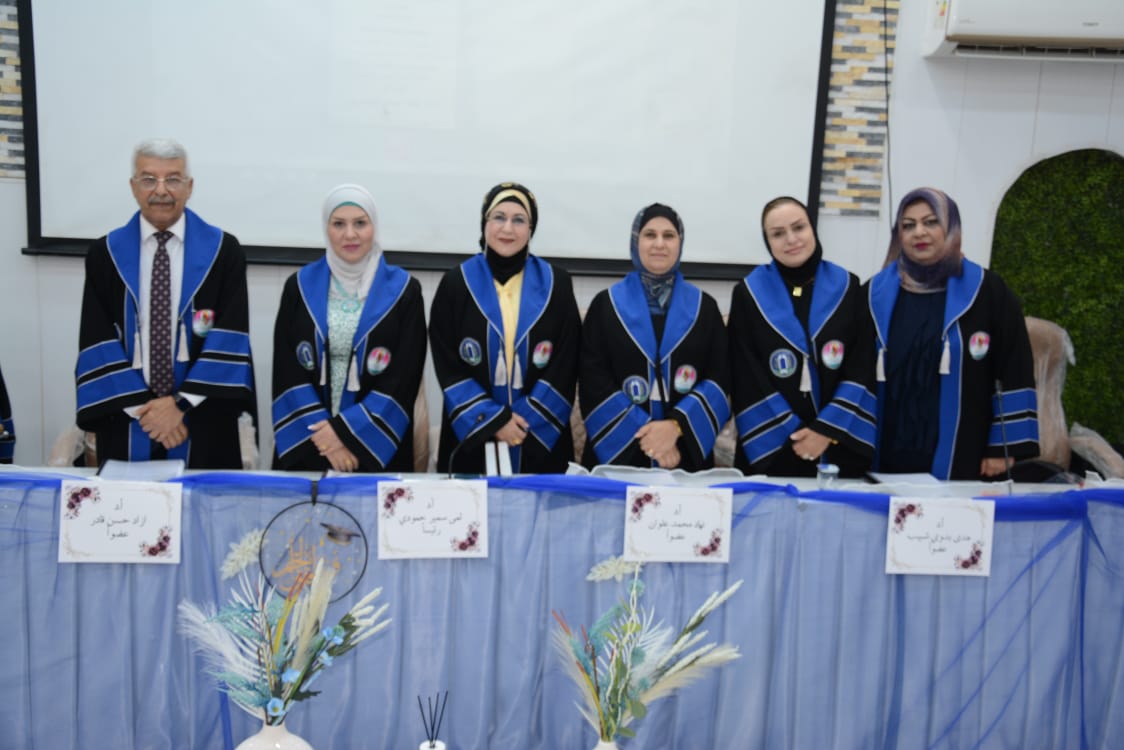The College of Physical Education and Sports Sciences for Women at the University of Baghdad held the examination of the doctoral dissertation titled: (The Effect of the Four Corners Strategy According to Fast and Slow Thinking on Cognitive Motivation and the Learning of Setting and Serve Reception Skills in Volleyball for Female Students) by the doctoral candidate (Sawsan Jawda Qasim).
The examination committee included: Prof. Dr. Luma Sameer Hammoudi – Chair, Prof. Dr. Najlaa Abbas Nassif – Supervisor, Prof. Dr. Azad Hassan Qader – Salahaddin University – Erbil (External Member), Prof. Dr. Nihad Mohammed Alwan – Member, Prof. Dr. Huda Abdul-Samee’ – Member, Prof. Dr. Huda Badawi Shibib – Member.
The study aimed to: Develop a classification scale for fast and slow thinking systems in volleyball skills among fifth-year preparatory female students at Al-Tasamoh Girls’ School; construct a cognitive motivation scale related to volleyball; design practical lessons using the Four Corners Strategy; and examine the strategy’s effect on cognitive motivation and the learning of setting and serving reception skills among the selected sample.
Key Findings:
The research confirmed the effectiveness of the Four Corners Strategy in practical physical education lessons. The developed scale proved scientifically reliable and helpful. Results indicated that students with fast thinking showed greater improvement in cognitive motivation and performance of setting and serve reception skills in volleyball than their slow-thinking peers.
Recommendations:
The study recommended focusing on modern teaching strategies based on active learning principles and integrating them into physical education lessons. It emphasized the importance of individual differences in thinking styles and their relevance to secondary school students’ needs and developmental stages. Furthermore, it highlighted the necessity of measuring and stimulating cognitive motivation in practical lessons to foster curiosity, inquiry, and knowledge-building among students.
This dissertation contributes to achieving Sustainable Development Goal 4: Quality and Lifelong Education.
